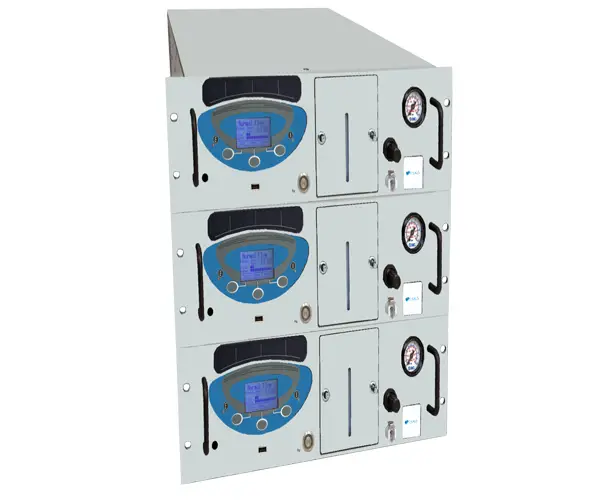GC and LC/MS fields of expertise require the purest gases and the most reliable gas sources. Hydrogen generators for GC and zero air generators are the key instruments that help us achieve the result precisely. First of all, let's elaborate on the role of these systems in getting rid of the chromatographic processes while discussing how to choose a reliable provider in this field.
Hydrogen Generators for GC: Enhancing Analytical Precision
Hydrogen operates as a carrying fellow in GC, which helps analgesic to split in the column. While traditional cryogenic hydrogen generation methods were very dangerous and inefficient, we are accustomed to handling large, high-pressure cylinders of gases, which posed safety risks and logistical challenges. Hydrogen generators all of sudden became the safest and most user-friendly option in town.
The Advantages Of Hydrogen Generators
The primary advantages of hydrogen generators are as follows:
- Safety: Hydrogen cylinders generate gas when needed, removing the need for deep store pressurized cylinders.
- Cost-effectiveness: Regular hydrogen production eliminates cylinder refilling costs; as a result, repetitive production reduces the annual operation costs.
- Purity: Impurities can affect the chromatographic process which should be avoided. GC devices like high-purity hydrogen generators provide results with the same high accuracy at all times.
- Convenience: The integrated and highly mechanized designs help speed up laboratory processes consequently.
Applications of Hydrogen Generators
The application areas of hydrogen generators are as follows:
- GC-FID (Flame Ionization Detector): You will be able to use hydrogen generators in GC-FID, this provides an unfailing carrier gas for the detention and identification of organic compounds.
- GC-TCD (Thermal Conductivity Detector): The gasification of hydrogen produces higher purity, on the other hand, sensitivity and accuracy are enhanced in the detection of gases with different thermal conductivities.
- GC-PDHID (Pulsed Discharge Helium Ionization Detector): For instance, when it comes to trace-level analysis, hydrogen generators are the only choices that are purified 99.99% thus being the best for the precise measurements.
Zero Air Generators: Ensuring Gas Purity for LC/MS Applications
ZERO air, the synthetic air, prevents any ominous particles that account for the inefficiency of the equipment such as LC/MS. The zero air generator for gas chromatography produces air free from pollutants such as hydrocarbons, carbon monoxide, and moisture.
Benefits of Zero Air Generators
The primary benefits of zero-air generators are as follows:
- Purity Assurance: The generators of zero air clean up the impurities to the trace level, and provide an alternative stable baseline and no grinding background noise mass spectrometry analyses.
- Sustainability: By dispensing with the need for compressed air cylinders, the zero air generators considerably diminish the carbon footprint as well as the related greenhouse gas emissions and waste that comes with the removal of cylinders.
- Compatibility: Zero air generators come with an LC/MS system that does not break the link of supplying high-grade air for uninterrupted instrument performance.
Applications of Zero Air Generators
Here are the application areas of zero-air generators:
- LC/MS Analysis: A zero-air generator is essentially needed in the study of LC-MS where the most sensitive analysis is done and where this info is retrieved from complex samples.
- Environmental Monitoring: In environmental laboratories, zero air generators are used to ensure precise determinations of pollutants contained in air and volatile organic compounds (VOCs).
Key Considerations for Choosing an LC/MS Gas Generator Supplier
The main factors to take into account when choosing LC/MS gas generator suppliers include:
- Reliability and Performance
Give preference to suppliers, with adequate background in delivery of stable generators whose uptime has always been guaranteed by high-quality gas.
- Gas Purity and Quality Grades
Check the supplier's capability of delivering ultra-high purity gases that are free of contaminants that can impair analytical measurements.
- Compatibility and Integration
Inspect the generators to make sure they are compatible with your LC/MS system regarding gas flow rates, pressure, and all integration options.
- Service and Support
Choose a dealer that supplies parts and services with installation assistance, service, and parts maintenance programs, as well as fast technical support.
- Cost-effectiveness
Assess the full cost of ownership which includes not only initial cost but efficient energy utilized and regular maintenance fee.
- Customization and Scalability
Judge if the supplier provides assembling options able to adapt the generator to meet your applicatory needs and scale up in the future.
- Regulatory Compliance
Confirm that your suppliers' operations meet the industry standard and necessary certifications to ensure safety and regulatory compliance in the lab.
In summary, hydrogen generators for GC and zero air generators are essential for improving the efficacy, security, and robustness of chromatography and mass spectrometry assays. Through collaboration with reliable providers, analytical laboratories can facilitate the process of integrating gas generation into given workflows, making sure the outcomes are exact and reproducible in performing the analytical measurements.





